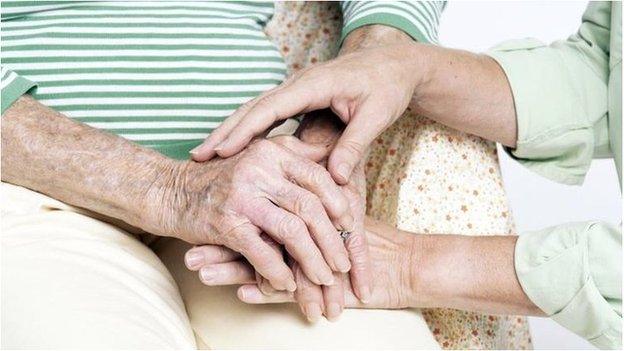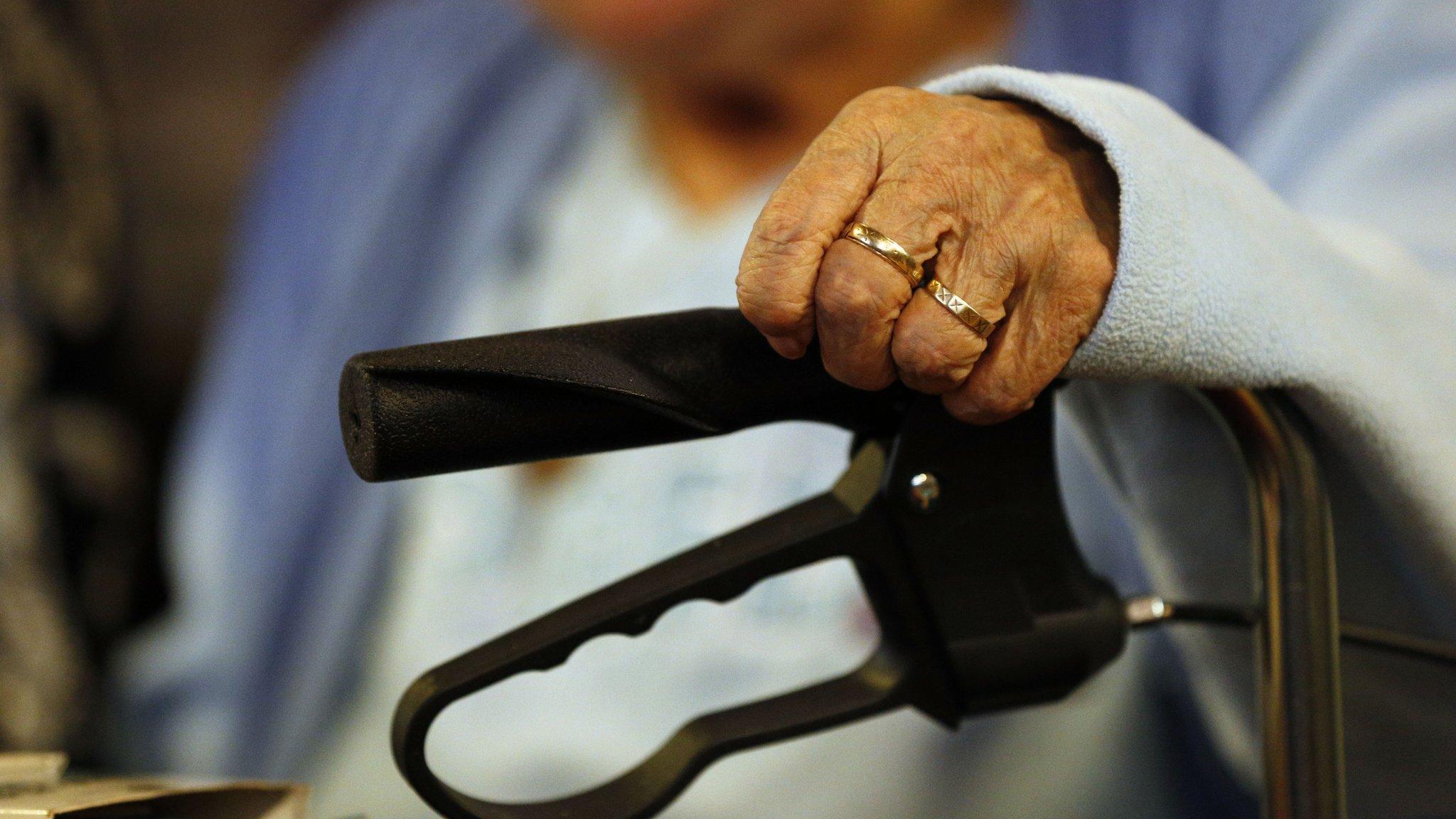Care costs cap delayed until 2020
- Published

The government says its flagship policy to cap care costs in England will be delayed until 2020.
Costs were to be limited to £72,000 for the over-65s and younger adults with disabilities from April 2016.
The Department of Health said it was still "firmly committed" to the cap, but questions are now being raised whether the policy needs rethinking.
The move came after councils wrote to ministers asking for a delay because of the "enormous pressures" they faced.
For years councils have been warning the care system - which covers residential care and help at home with tasks such as washing and dressing - has been underfunded. A shortfall of £4.3bn has been predicted by the end of the decade - nearly a third.
Concerns had also been expressed that the drive for a national living wage would push up costs.

BBC Cost of Care project

The BBC has launched an online guide to the care system for the over-65s. The "care calculator" covers residential care and the support provided in people's own homes, for tasks such as washing and dressing.
Users can submit their postcode and find out how much each service costs where they live in the UK.
There is also a dedicated BBC Cost of Care website, with news stories, analysis and video.

The letter from the Local Government Association on 1 July said that while councils backed the introduction of the cap, it was not possible to cope with the extra demands the changes would bring at the moment.
It said the current system was "no longer sustainable" and pressing ahead would be "deeply damaging".
It had been predicted the changes would add £6bn to public sector spending over the course of five years.
The move was part of a raft of changes being introduced under the 2014 Care Act and included in the Conservative Party's manifesto.
Catastrophic costs
As well as capping costs, the changes would have provided a more generous system of state help.
Currently those with assets above £23,250 do not get any help from councils towards their costs.
That was to have risen to £118,000 under the changes.
Ministers had claimed the policy would stop people racking up "catastrophic" care costs in old age - one in 10 people who enter the care system end up forking out over £100,000.
In a written ministerial statement, the government said it was "firmly committed" to the plans, but it was clear following the letter from the LGA that the government needed to "think carefully".
"This is not a decision that has been taken lightly. Further announcements will follow in due course."
But Labour's shadow care minister Liz Kendall said: "This is a shameful broken promise from David Cameron, and devastating news for older people and their families who have been trying to plan for the future."
Councillor Izzi Seccombe, of the LGA, said: "In an ideal world, we would have funding for both the system and the reforms but we have to be realistic about where scarce resources are needed most.

How the care system works

People have to pay for their elderly care whether that's round-the-clock help in a care home or support with tasks such as washing and dressing in their own home.
Currently only those with low means - under £23,250 in savings and, in some cases, the value of a home - get help towards their costs.
The rest have to pay all their care costs. For one in 10 these can exceed £100,000.
The government has proposed capping lifetime costs at £72,000 from the age of 65 onwards. Although this does not cover living costs for things such as food, bills and accommodation, for which people will still be liable to the tune of £230 a week.
The cap also applies to younger people with disabilities over the age of 25, although much of the attention has been on older people as they tend to be the ones who have built up the assets to face the biggest care costs.
Want to find out more?

"Any money from delaying the reforms must be put back into adult social care services and support putting it on a sustainable footing."
Age UK's Caroline Abrahams said the delay was the right decision as introducing the cap now would have been a "distraction" at a time when the care system was in a state of "cataclysmic" decline.
"What matters now is that the government grasps the scale of the galloping crisis and uses the spending review to bring forward effective solutions."
She said she hoped the delay would lead to a rethink as the cap had been set too high in the first place.
Prof Martin Green, chief Executive of Care England, which represents care providers, said it was now time to come up with a "sustainable" solution "once and for all".
"If the government refuses to address the issue of funding, we will have a care system in crisis and the NHS unable to cope with the pressure," he added.
- Published9 February 2015

- Published28 July 2015
